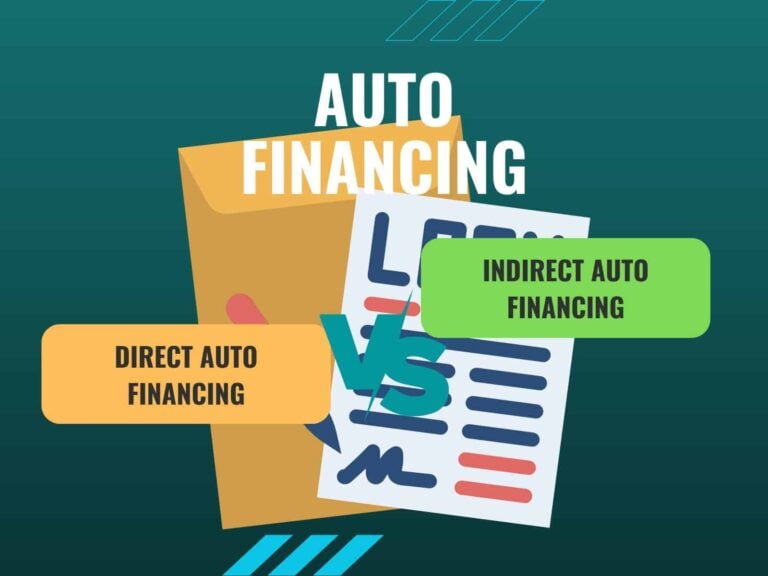Arizona Debt Settlement
Arizona ranks 14th in population in the United States, as the state was home to 7,278,717 residents in 2019 while covering an area of 113,990 square miles that ranks it sixth nationally in terms of geographic size. The state’s relatively large land mass results in Arizona ranking 33rd nationally in population density, with approximately 57 residents per square mile.
Roughly one quarter of the state is comprised of Indian reservations that are home to 27 Federally recognized Native American tribes, including the Navajo Nation, the country’s largest tribe, with over 300,000 citizens. Arizona includes the Grand Canyon National Park – one of the world’s seven natural wonders – as well as several other national parks, national forests and monuments. Arizona’s economy historically has relied upon copper, cotton, cattle, agriculture, and tourism.

Copper is still extensively extracted from open-pit and underground mines, and Arizona accounts for two-thirds of the nation’s overall output. Today, the state government is Arizona’s largest employer, while Banner Health is the state’s largest private employer with over 39,000 employees, with Walmart stores running a close second. The Arizona economy generated a gross domestic product of $348.3 billion in 2018, ranking twentieth in the nation.
This figure places it ahead of the GDP of countries such as New Zealand, Ireland and Finland. Important industries to Arizona’s economy beyond government include transportation, education, health care, hospitality and leisure, finance, manufacturing, construction and mining. Kroger, McDonalds, Albertson’s, Wells Fargo, Bank of America, JP Morgan Chase, Intel and Raytheon are all significant employers within the state.
Arizona’s median household income level of $59,246 ranks 28th in the nation and is 6% lower than the national median household income level of $63,030. Meantime, Arizona’s per capita income in 2018 was $38,590, ranking the state 44th in the nation.
Arizona Economic and Debt Statistics
According to the Bureau of Labor Statistics, Arizona’s unemployment rate stood at 4.5% as of December 2019, considerably higher than the national unemployment rate of 3.5%. In terms of average household credit card debt, Arizona ranks 30th in the nation, checking in at $7,100 – almost 24% less than the national average of indebted households of $9,333.
Arizona Economic and Debt Statistics
Meantime, compared with the 2019 nationwide average FICO score of 703, the typical Arizona resident’s 2019 FICO score checks in somewhat lower at 696, ranking 35th nationally. According to the St. Louis Fed, as of Q4 2018, the Arizona home ownership rate stood at 65.7%, slightly higher than the national average of 64.8%, while a recent Experian report shows average mortgage debt of $202,148, a 1.4% increase compared to the figure in 2018, ranking the state 15th highest in the country.
The median sales price for a home in Arizona during 2019 was $241,660. Regarding student loans, data compiled by Experian in 2019 indicates that Arizona shows an average student loan debt per student borrower of $34,740, up 6.2% from the previous year and 28.3% from the level in 2014.
Arizona Residents and Debt Settlement
If you are a resident of Arizona and are currently burdened by high levels of unsecured debt – including credit card accounts, private student loans, unpaid medical bills and personal loans – the process of pursuing debt settlement may make sense for you. Debt settlement occurs when a debtor successfully negotiates a payoff amount for less than the total balance owed on a debt.
This lower amount is agreed to by the creditor or collection agency and is fully documented in writing. Ideally, this lower negotiated amount is paid off in one lump sum, but it can be paid off over time. Though creditors are under no legal obligation to accept debt settlement offers, negotiating and paying lower amounts to settle debts is far more common than many people realize.
Arizona Consumer Debt Laws
Credit Card companies and other creditors are permitted to contact Arizona residents directly regarding debts, particularly in a situation involving delinquent payments. However, debt collection agencies are required to comply with the the Federal Fair Debt Collection Practices Act (FDCPA), and are therefore prohibited from taking certain actions.
Under the FDCPA, collection agencies are prohibited from informing employers about a debt or attempting to collect a fee in excess of any debt owed. Debt collection agencies are also prohibited from communicating in a manner that simulates a judicial process or gives the appearance of a governmental action.
Additionally, debt collection agencies are prohibited from contacting debtors or debtor family members at unusual hours or with a frequency that may be reasonably construed under the law as harassment or abuse.
Arizona supplements the FDCPA with a criminal statute that makes it illegal for debt collectors to engage in deceptive or unfair collection practices. However, since Arizona’s debt collection law functions as a criminal statute, it does not permit individuals to sue collection agencies for violating the law.
Instead, violation of the Arizona debt collection statute is considered a Class One Misdemeanor. The Arizona criminal statute requires all employees of collection agencies to “deal openly, fairly and honestly” while conducting business, and to not engage in any unfair or misleading practices. The statute also forbids any oppressive, vindictive or illegal collection methods.
An Arizona debtor who has been victimized by a collection agency can report the statutory violation to the local city or county prosecutor, who will pursue criminal remedies. Arizona residents faced with abusive or harassing debt collection tactics cannot sue for monetary damages under the state criminal debt collection statute, but are able to sue for monetary damages under the FDCPA.


Arizona Statute of Limitations on Debt Collection
When sufficient time passes in a situation in which consumer debts have gone unpaid, a debt collector can lose the legal right to sue for non-payment. In Arizona, the statute of limitations on debt collection varies according to the type of debt involved. For written contracts, the statute of limitations is six years. Oral contracts have a statute of limitations of three years. Open accounts, including credit card accounts, have a statute of limitations of three years.
Promissory notes have a statute of limitations of six years. For any time period, the clock begins ticking from the “date of default,” which is typically thirty days after the last payment was actually made. Additionally, any written acknowledgment signed by the debtor or any payment on a debt serves as sufficient evidence to “re-set the clock” and cause the statute of limitations to start over.
When debts remain unpaid prior to the statute time period elapsing in full, creditors maintain legal right to sue you for non-payment and are permitted to engage debt collection agencies who can make persistent attempts at collection – as long as they remain within the bounds of the Arizona criminal statute related to debt collection and the FDCPA.
Debt Settlement - Do It Yourself?
Getting out of debt is never an easy process. If debt settlement is the right avenue for you to pursue, be honest with yourself. Decide whether you possess the background, strength and fortitude to negotiate directly with creditors yourself – or whether engaging the services of an experienced and reputable debt settlement company will serve your needs best.
Remember, the goal is to save the greatest amount of money and time while minimizing any ensuing damage to your credit score and profile. A reputable debt settlement company will provide a realistic estimate and time frame for making offers to your creditors that can ultimately result in settlements that save you significant amounts of money, time, and aggravation.
Contact us here at United Settlement, where our experienced credit counselors possess relationships with the major credit card lenders and a broad understanding of the debt marketplace. We can help you navigate these waters successfully.
Debt Resources & Additional Reading
Arizona Debt Settlement FAQs
Yes, if you are an Arizona resident and currently burdened by high levels of unsecured debt – including credit card accounts, personal loans, unpaid medical bills and private student loans, United Settlement can assist you with the process of pursuing debt settlement. Debt settlement occurs when a debtor successfully negotiates a payoff amount for less than the total balance owed on a debt. Contact us here at United Settlement, where our experienced credit counselors possess relationships with the major credit card lenders and a broad understanding of the debt marketplace. We can help you achieve the peace of mind that comes with living a debt-free lifestyle.
Yes, United Settlement offers debt consolidation services in the state of Arizona. The process of debt consolidation involves combining and paying off multiple debts with one single loan, typically resulting in a lower blended interest rate and monthly payment. Debt consolidation provides the dual benefits of streamlining the repayment process while simultaneously lowering interest expense and the total amount repaid over time.
The responsibility for spousal debt largely depends on where a couple has lived – and whether that state is a “community property” state, or an “equitable distribution” state. Since Arizona is an equitable distribution state, debts incurred by one spouse remain that spouse’s debts alone – unless the debt relates to a family necessity – such as shelter, food, and tuition. Additionally, all accounts with both spouse’s signatures attached are jointly liable for any accompanying debts.
Debt collectors can garnish wages in the state of Arizona, but only after suing a delinquent debtor and successfully obtaining a court judgment that allows for wage garnishment within certain restrictions. In Arizona, a creditor can garnish up to 25% of a delinquent debtor’s disposable income – which is defined as the amount of money remaining after legally mandated deductions from a paycheck – or 30 times the Federal minimum wage, whichever is less.
Additional Related Insights & Articles





Credit Card Debt Relief Reviews

Ready To Get Started?
See if you qualify for debt relief. Get A Free Savings Estimate to see how quickly you can be debt free.
Embrace financial freedom with our tailored solutions, expert guidance, and unwavering commitment to your success.
Experienced Professionals
Our team comprises seasoned experts who have successfully navigated countless clients towards a debt-free life.
Customized Solutions
We understand that every financial situation is unique. That’s why we craft bespoke debt relief plans tailored to your specific needs.
High Success Rate
Our track record speaks for itself. Our effective strategies and dedicated approach ensure tangible results.
Confidential Consultation
Your privacy is paramount. Rest assured, our consultations are carried out with the utmost discretion and confidentiality.
Debt Help Near Me
Experienced Professionals
Our team comprises seasoned experts who have successfully navigated countless clients towards a debt-free life.
High Success Rate
Our track record speaks for itself. Our effective strategies and dedicated approach ensure tangible results.
Confidential Consultation
Your privacy is paramount. Rest assured, our consultations are carried out with the utmost discretion and confidentiality.





